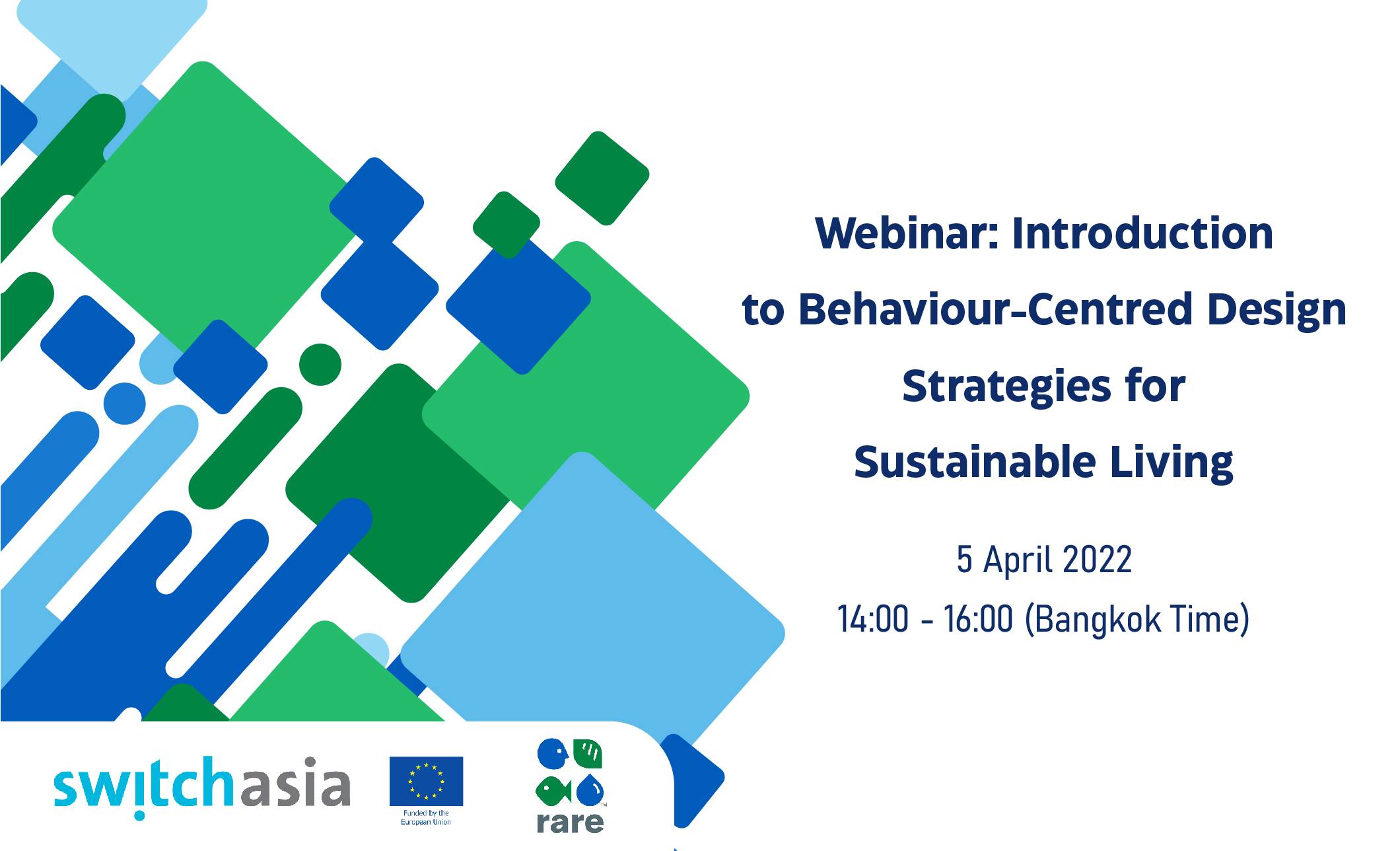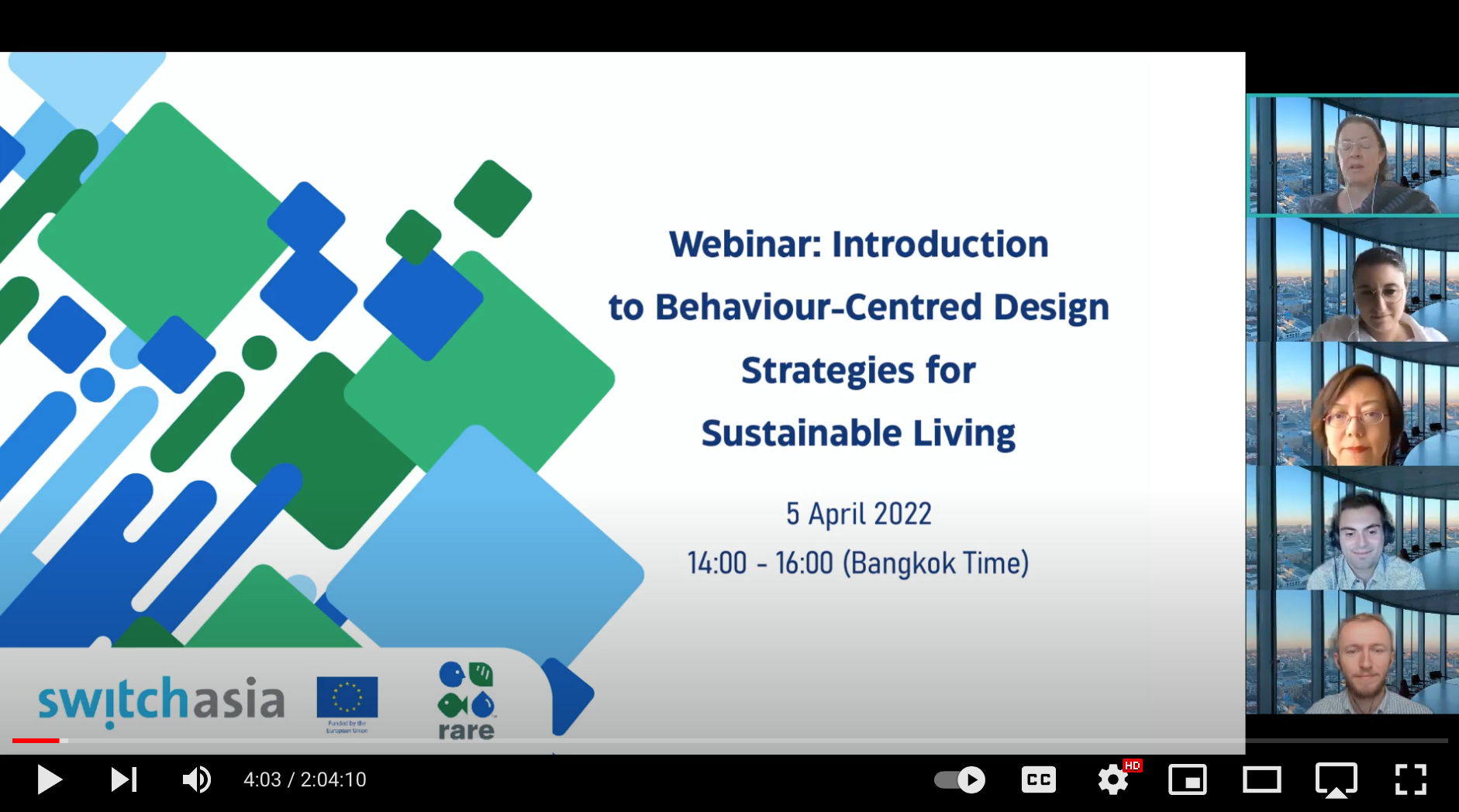
When: 5 April 2022 I Time: 14:00 - 16:00 (Bangkok Time)
Background
Behaviour change and sustainable lifestyles are a necessary, but often missing strategy for reaching sustainable development goals, including tackling climate change and reaching the 1.5 °C target. Shifting to low-carbon lifestyles, for instance, can reduce overall energy demand as well as reduce the dependence upon wasteful technologies. The Intergovernmental Panel on Climate Change (IPCC) has already made it clear in its 2018 Report that at this stage, what we need to tackle climate change is behavioural change. Similar actions will lead to overcoming resource constraints and waste generation challenges. Consumer choices and behavioural changes can significantly reduce energy consumption, generating substantial reductions in GHG emissions, contributing to resource security and mitigation of environmental damage. For instance, one can tackle climate and resource challenges by:
- Choosing low-carbon construction materials and insulating buildings;
- Actively selecting low-emission efficient electric vehicles, heat pumps, among other efficient equipment;
- Switching to energy saving behaviour – Walking or cycling for short distances, using mass transit, line drying for laundry; reducing food waste;
- Choosing products with low Green House Gas (GHG) emissions – Reducing meat and dairy intake, buying local and seasonal food, replacing aluminum products by low GHG alternatives;
And much more!
Behaviour-Centred Design (BCD) is an approach that blends insights, methods, and tools from behavioural science, design thinking, and communications to build breakthrough solutions to environmental challenges. Environmental challenges are behavioural challenges. To solve them, we need people (whether they are consumers, fishers, farmers, business people or policymakers) to change how they interact and take action in their surrounding environment. At the same time, moving toward sustainable lifestyles requires both individual behaviour change as well as broader systematic and political change. Bottom-up behaviours at the personal, household, and community levels can work to change the system, but systems changes are also needed in order to fully enable behaviour change.
Learning Outcomes and Training Objectives
We want conservation and environmental practitioners, programme designers and policy staff, communication officers, and current and future sustainability professionals to gain the knowledge and tools that will enable them to start their Behaviour-Centred Design journey.
With this introductory webinar, participants will gain a basic understanding of the levers of behaviour change used to design environmental solutions and apply behavioural insights and principles to their work. A case study from SWITCH-Asia Pride on Our Plates Project will be analysed and presented during the webinar applying a Behaviour-Centred Design lens.
Learning Objectives
By the end of this webinar, participants will be able to:
- Identify target behaviours and core actors for environmental challenges;
- Explain key concepts of behaviour-centred design and the six behaviour levers;
- Describe why it’s important to use research data to inform designing and testing solutions;
- Know next steps for applying behavioural insights and principles to prototyping, testing, launching, and assessing a behavioural solution;
- Explain how diversity, equity, and inclusion are important for each step of the behaviour-centred design approach.
 Our Partner
Our Partner
This webinar will be jointly delivered by RARE and SWITCH-Asia Experts. Through the Center for Behavior & the Environment, Rare uses the science of human behaviour to encourage individuals and their communities to adopt more sustainable practices and behaviours that benefit people and nature – and ensure that change lasts. Rare has helped thousands of people across hundreds of communities in over 60 countries shift their behaviours and practices to protect the nature that sustains their lives, livelihoods, and communities.
Certificate of Attendance issued to participants by SWITCH-Asia and the Rare Center for Behavior & The Environment.
Watch the Webinar Recording




